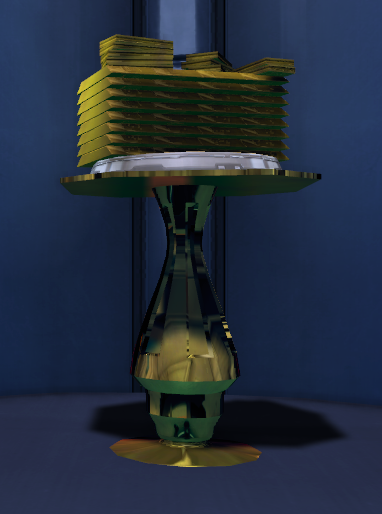

- #MEMORY ALPHA LATINUM LICENSE#
- #MEMORY ALPHA LATINUM SERIES#
- #MEMORY ALPHA LATINUM TV#
- #MEMORY ALPHA LATINUM FREE#
Palmieri felt it important for the series to deal with the loss of characters who had moved on from the station at the end of the televised narrative, and to introduce these new arrivals, noting that " it was a great opportunity to create a new group dynamic where we could explore and learn about the new kids on the block, and explore the old ones in new ways" ( Voyages of Imagination, pp. 256-257). After two years of development, the series began with the two-part Avatar.Īs well as featuring the characters from the television series and bringing Ro Laren into the series, the post-finale novels introduced brand new characters, such as Elias Vaughn, Taran'atar, Thirishar ch'Thane, Prynn Tenmei, and Sam Bowers, among others.
#MEMORY ALPHA LATINUM TV#
He was keen to ensure the novels stayed close to " the tone and texture of the TV series while still presenting the audience with something new," ( Voyages of Imagination, pp. 256-257) and while he was concerned that what was developed might eventually be contradicted by a future TV episode or movie, he considered it a worthy gamble. Palmieri first developed what he terms the "metastory", the narrative framework for the stories to be told in, which would give what he called " a shared creative direction, but roomy and flexible enough to accommodate sudden inspirations or unexpected twists". Block in the Paramount licensing division. He was supported in his efforts by Paramount, in particular Paula M.
#MEMORY ALPHA LATINUM FREE#
We wanted it to be a true continuation, chronicling events that, like those on the TV series, would be fraught with consequences and free of resets" ( Voyages of Imagination, pp. 256-257). Palmieiri considered the task of the post-finale series to be " an amazing opportunity for the fiction to continue where a show had left off – to offer its fans a vision of what happened next. The idea of continuing the story of Deep Space Nine in novel form came from Pocket editor Marco Palmieri, who discussed its conception and development in Voyages of Imagination. The Lives of Dax anthology was originally published in 1999 with the classic DS9 logo, but was republished in 2003 with the relaunch logo. The original DS9 logo is used for literature that is set during the series, such as the 2003 anthology Prophecy and Change and the 2005 novel Hollow Men. Michael Okuda created the new logo for the post-" What You Leave Behind" novels, which began in 2001. The majority of novels being written now form part of the so-called " Star Trek: Deep Space Nine relaunch", which picks up the story after the end of the filmed series and has become extremely popular with readers. Twist of Faith, a collection of the first five stories from the post-finale novels That's the irony: one of the things that DS9 fans enjoyed most about the series actually worked against the novels!" (X) Post-finale novels Think of all the changes the characters and situations underwent in that time. An example: a novel that was approved during the middle of Season 3 probably wouldn't get published until the end of Season 4. Given the speed at which those changes were taking place on screen, and the sheer scope and number of those changes from one episode to the next, it simply wasn't possible to for the books to keep up. Now factor in the fact that DS9 developed a evolving story with more character development and plot twists that any other Star Trek series. There are exceptions, but that's the average. From the time an idea for a novel is approved by Paramount to the day you actually see the book on a store shelf, an average of eighteen months has gone by. Marco Palmieri commented: " Book publishing is not a fast process. The novels published during the run of the series sometimes found themselves quickly contradicted by the serialized nature of the series. Most of the numbered novels take place during the first four seasons of the series.

All DS9 novels, technical publications and adaptations have been part of this ongoing series.
#MEMORY ALPHA LATINUM LICENSE#
Pocket Books was the first publisher given license by Paramount to produce a series of original novels and episode novelizations based on Star Trek: Deep Space Nine.


 0 kommentar(er)
0 kommentar(er)
